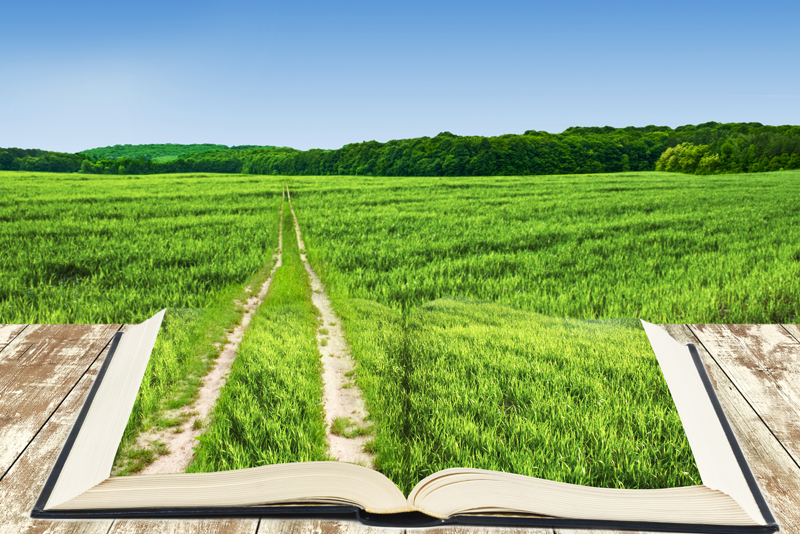African American Literature Defined

Like many categories of literature, there is quite a bit of confusion surrounding the classification of African American literature. In times when slavery, discrimination and segregation was the law of the land and practiced enthusiastically, the lives and experiences of Americans of African descent clearly held a different and wholly unique viewpoint. That’s why a classification for literary works was created to give voice to that segment of society that was not represented in the American literature category. There were, and to a great degree still are, different Americas for people of color. So, the written stories that came from living in the “other America” were given a home. The distinct writings have deeply historical beginnings for African Americans and have evolved as times have changed. The question is, has African American literature evolved enough? To answer that question, we must take a look at the works that fall under its umbrella.
Understandably, a lot of African American literature was written to reflect the social and economic lives of a people in the United States. It includes authentic slave narratives, stories of overt and systemic racism, civil rights and cultural progress and regress. To ensure that the voice of the writer was authentic, works are not classified as African American literature unless the author is of African descent. It makes sense from the stance that we are molded from our experiences. Writing is an art form in which African Americans are able to express and expose the struggles of everyday life in the United States. The very fact that African American literature is considered a subcategory of American literature is, in and of itself, an example of that struggle. Although segregated, perhaps the most important byproduct of the many written accounts is that they provide an honest record of American history.
However, what happens when African American writers no longer write in a voice that uniquely expresses a cultural divide or experience? Is it still considered African American literature? This is where the confusion lies as all works from a black writer or one of African American descent will be automatically defined as African American literature - no matter what. One reason given by the publishing industry for this practice was to make it easier for African American readers to find books that appeal to them. The same old segregation message of being "with your kind" that can be said with a smile. Of course the other less explained reason is the belief that non-black readers wouldn't have an interest in books written by African American authors and could therefore, easily avoid them. These assumptions, which have led to the segregation of the written word for all writers of African descent, do a disservice to both readers and authors alike. It also does a disservice to a literary category which was meant to elevate voices, but instead serves as a genre catchall in the publishing world.
This practice should change. In the literary world, we need an evolution.
With the use of technology, readers have the ability, whether online or in a brick and mortar store, to instantly read up on the author and check reviews if a book appeals to them. With this type of information available, perhaps it’s time to let readers discover authors, including African Americans, within their preferred genre. Perhaps it’s time to let the skills of the author and contents of their works speak for itself. It’s clear that the ancestry of African American characters such as Alex Cross and the various African American characters in The Help found a home with millions of diverse readers, even though the authors are white. So, there is no need to continue to separate African American writers of romance, or mystery, or horror, or any other genre based solely on their ancestry.
True book lovers just want to read a good book within the genre of their choice, and that includes those written by black authors. Now if readers can only find them.
Understandably, a lot of African American literature was written to reflect the social and economic lives of a people in the United States. It includes authentic slave narratives, stories of overt and systemic racism, civil rights and cultural progress and regress. To ensure that the voice of the writer was authentic, works are not classified as African American literature unless the author is of African descent. It makes sense from the stance that we are molded from our experiences. Writing is an art form in which African Americans are able to express and expose the struggles of everyday life in the United States. The very fact that African American literature is considered a subcategory of American literature is, in and of itself, an example of that struggle. Although segregated, perhaps the most important byproduct of the many written accounts is that they provide an honest record of American history.
However, what happens when African American writers no longer write in a voice that uniquely expresses a cultural divide or experience? Is it still considered African American literature? This is where the confusion lies as all works from a black writer or one of African American descent will be automatically defined as African American literature - no matter what. One reason given by the publishing industry for this practice was to make it easier for African American readers to find books that appeal to them. The same old segregation message of being "with your kind" that can be said with a smile. Of course the other less explained reason is the belief that non-black readers wouldn't have an interest in books written by African American authors and could therefore, easily avoid them. These assumptions, which have led to the segregation of the written word for all writers of African descent, do a disservice to both readers and authors alike. It also does a disservice to a literary category which was meant to elevate voices, but instead serves as a genre catchall in the publishing world.
This practice should change. In the literary world, we need an evolution.
With the use of technology, readers have the ability, whether online or in a brick and mortar store, to instantly read up on the author and check reviews if a book appeals to them. With this type of information available, perhaps it’s time to let readers discover authors, including African Americans, within their preferred genre. Perhaps it’s time to let the skills of the author and contents of their works speak for itself. It’s clear that the ancestry of African American characters such as Alex Cross and the various African American characters in The Help found a home with millions of diverse readers, even though the authors are white. So, there is no need to continue to separate African American writers of romance, or mystery, or horror, or any other genre based solely on their ancestry.
True book lovers just want to read a good book within the genre of their choice, and that includes those written by black authors. Now if readers can only find them.

Related Articles
Editor's Picks Articles
Top Ten Articles
Previous Features
Site Map
Content copyright © 2023 by Nina Guilbeau. All rights reserved.
This content was written by Nina Guilbeau. If you wish to use this content in any manner, you need written permission. Contact Nina Guilbeau for details.







